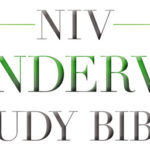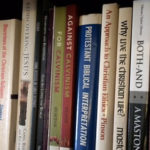Posted: 5/19/03
June 22 Lesson
Amos 7:7-17
On the outside looking in
By Bill Shiell
For six chapters, Amos has preached a word of the Lord to the people. As a prophet, he has used the deeds of the people as signposts to point them to the problems of their day. Although the world around Amos was politically secure, spiritually the people were in shambles. In our focal text for this lesson, we gain insight into the prophet behind the prophecies.
Amos: The messenger
The book of Amos begins with very little information about the prophet himself. We learn from the first chapter about his hometown and his primary occupation as a shepherd. The focus of the book is not on biographical details but the word Amos speaks. In chapter 7, however, we learn a bit more about the man behind the prophecies and how his role as an outsider might have affected his mes
|
|
sage to the people of the northern kingdom of Israel.
One word that characterizes Amos' life is “outsider.” Amos was an outdoorsman, one who spent much of his time in the desert with sheep (1:1) and sycamore trees (7:14). As Amos says, he considers himself to be “neither a prophet nor a son of a prophet.” In other words, he has had no formal training for this role; he is a country man called out by God to announce these words of warning to the people.
Located six miles south of Bethlehem, Tekoa was a town somewhat isolated from the rest of Judah. It is significant in only two other places in the Bible. A wise woman from Tekoa once visited King David, and King Rehoboam fortified the city.
More than likely, Amos lived on the outskirts of the city in the wilderness region that extends east along the Dead Sea. The climate and terrain of this region make it possible for Amos to tend to sheep and care for the trees as well.
People like Amos who lived in the desert were removed from the progress of civilization in the populated regions and would have had little regard for the wealth being consumed by the rich of their day. They still would hold fast to the Mosaic laws that guided the chosen people to this land.
As a man who lived outside, Amos would have had contact with many of the images he used in his prophecies–locusts (7:1), fire (7:4), lions (1:2; 3:4, 8, 11), drought (1:2), birds (3:5) and traps (3:5).
Amos was not only a geographical outsider, but he was a political outsider as well. Tekoa was located in the southern kingdom of Judah. Amos traveled into hostile territory, the northern kingdom of Israel, where he was called to prophesy against their transgressions. The cities of Bethel, Gilgal and Samaria were no more than a two days' walk for anyone from the village of Tekoa. Amaziah, the priest Amos confronted in 7:12-13, was so enraged a prophet from Judah would come to Israel to preach he tried to force Amos to go home.
Amos probably was a social outsider as well. Most biblical scholars agree that shepherds earned very little money and were viewed as social outcasts by the majority of the population. Amos naturally would have been sympathetic to the causes of the poor and the despised.
Amos also functioned as a religious outsider as well. Unlike Isaiah, who was a priest in the temple system, Amos was simply a layman. With no formal training whatsoever and no family ties to the priesthood (7:12, 14), Amos would have walked into the role of prophet with no credentials other than the word of the Lord that was spoken directly to him. Amos even admits he was plucked from his occupation and sent to this region by God directly (7:15).
Amos' life as an outsider contrasts sharply with those that failed to hear God's voice in society. All the individuals on the inside were deaf and blind to the message of God–an Israelite king who inherited the throne, a priest named Amaziah who regularly dealt with the holy things of God, and the rich and wealthy who had enough time and money on their hands to do anything they wanted to. None of these people accepted God's warnings or could see the signs in their society that judgment was coming. God had to raise up an outsider to carry forth his message.
Amos: The message
Amos' identity as an outsider more than likely helped him shape the message that would be used to warn the people. The opening verse of Amos provides a date for his message two years before a key event, the year of a great earthquake. We do not know the precise date for this event, but we do know it occurred during the reign of Uzziah.
This king of Judah was quite popular. He ascended the throne at age 16 and was known for conquering the dreaded Philistines, building up Jerusalem and organizing an army. At the zenith of his success, however, his pride overcame him.
According to 2 Chronicles 26, he went into the temple and attempted to burn incense, a direct violation of the laws of God and a privilege reserved only for the priests. As soon as he was confronted with this sin, while he was in the temple with a burning tong in his hand, Uzziah contracted leprosy and remained so until he died. He was removed from the throne and had to live in isolation the rest of his life. For the southern resident Amos, familiar with Uzziah's sins and shortcomings, to see similar transgressions in the north was possibly a motivating factor for this shepherd in touch with God.
The northern king, Jeroboam II (circa 783-743 B.C.), had caused troubles much like Uzziah. He created a false sense of peace and tranquility by paying taxes to the influential Assyrian nation to his north. In doing so, he violated God's command for the people to be completely reliant upon him.
Assyria had expanded its empire southward, taking the areas of Erini (775 B.C.), Damascus (773 B.C.) and Hadrach (772 B.C.). By keeping the Assyrians at bay for several years, Jeroboam II was able to convince the people through his priest Amaziah that they were safe and secure as God's chosen ones. During this time, they had no conflicts with the southern kingdom of Judah, and the economy flourished through some agriculture, trade, urbanization and slavery.
Amos, however, had a different perspective. He stated the people tried to manipulate God and that priests like Amaziah had taken power into their own hands. As Chip Conyers noted, Israel tried to appeal to God for the purposes of economic security and political safety but wanted to organize their nation to fit their own plans. Amos, however, said the people could not worship God merely for what he could do for them. Rather, God reached down to Israel, choosing them to be used for his purposes. The covenant into which they entered was an “all-or-nothing” proposition, and the people were required to live up to their end of the agreement.
With the analogy of the plumb line in 7:7-9, Amos indicated the walls of their false religion were cracking and crumbling, no longer aligned with God. Because the walls of their religion had been breached by their own injustice, mistreatment of the poor and participation in sexual immorality in the worship centers (7:9), they could no longer be continually pardoned for their misdeeds.
The Lord had measured Israel like a plumb line, and they were found to be crooked. Their king and priest would die shameful deaths, and their people would be taken into exile (7:17).
Amos: The representative
Amos' life follows in a long tradition of outsiders, especially shepherds, whom God uses to carry out his work. God called out a Bedouin shepherd named Abraham to be the first one to bear his covenant promise for a new nation. Moses ran from the Egyptian palace guard and found an occupation as a shepherd tending his father-in-law's flocks until God convinced him to appear before the Pharaoh to free the Israelites from slavery. David's primary occupation prior to becoming the anointed king of Israel was the shepherd of father Jesse's flocks.
Amos seems to fit the pattern, and his life anticipates another shepherd, the Good Shepherd, who will come and complete the task Amos began, offering a word of hope, judgment and redemption to the lost sheep of the world (John 10).
When our own religious and political institutions become corrupt, God must use outsiders to awaken our senses to a new, fresh calling on our lives. Amos provides an example of one who came from the outside to awaken people to God's day of wrath dawning on them.
Questions for discussion
![]() Make a list of people in the Bible who were considered outsiders by their community's standards until God used them on the inside of society to change people's hearts.
Make a list of people in the Bible who were considered outsiders by their community's standards until God used them on the inside of society to change people's hearts.
![]() While many of the people God uses in Scripture are like Isaiah, formally trained for their tasks, some are like Amos, with no training whatsoever. Has there been a circumstance recently in your life that you have felt God's nudging but used the excuse that you needed more training to be suited for that task?
While many of the people God uses in Scripture are like Isaiah, formally trained for their tasks, some are like Amos, with no training whatsoever. Has there been a circumstance recently in your life that you have felt God's nudging but used the excuse that you needed more training to be suited for that task?
![]() The first part of chapter 7 records Amos' requests urging God not to bring the judgment he had planned on the people. Amos prayed continually that God would relent. How is Amos a model of prayer today? In a world where some preachers focus solely on condemnation and judgment, how does Amos' prayer life provide an alternative to this one-sided view of preaching?
The first part of chapter 7 records Amos' requests urging God not to bring the judgment he had planned on the people. Amos prayed continually that God would relent. How is Amos a model of prayer today? In a world where some preachers focus solely on condemnation and judgment, how does Amos' prayer life provide an alternative to this one-sided view of preaching?
![]() Amos rises to the occasion for one brief moment in time and follows God obediently, perhaps even at the cost of his life. Even though there may be times in our past where we have not been faithful to God, the Lord still can use us at this moment. Think of ways God can use you in the world today to carry out Amos' message of justice and love.
Amos rises to the occasion for one brief moment in time and follows God obediently, perhaps even at the cost of his life. Even though there may be times in our past where we have not been faithful to God, the Lord still can use us at this moment. Think of ways God can use you in the world today to carry out Amos' message of justice and love.













We seek to connect God’s story and God’s people around the world. To learn more about God’s story, click here.
Send comments and feedback to Eric Black, our editor. For comments to be published, please specify “letter to the editor.” Maximum length for publication is 300 words.